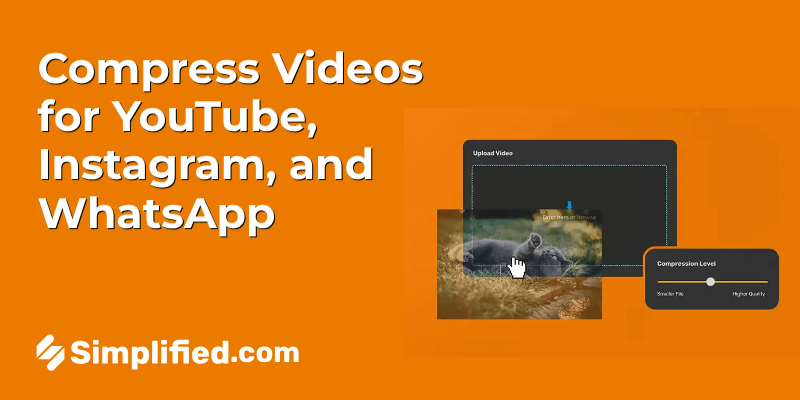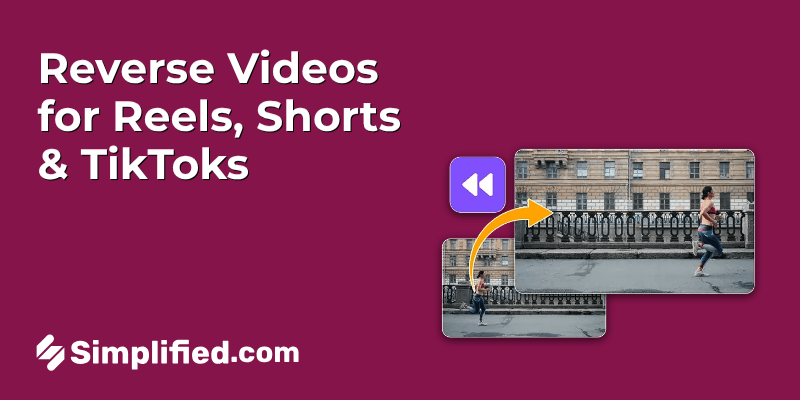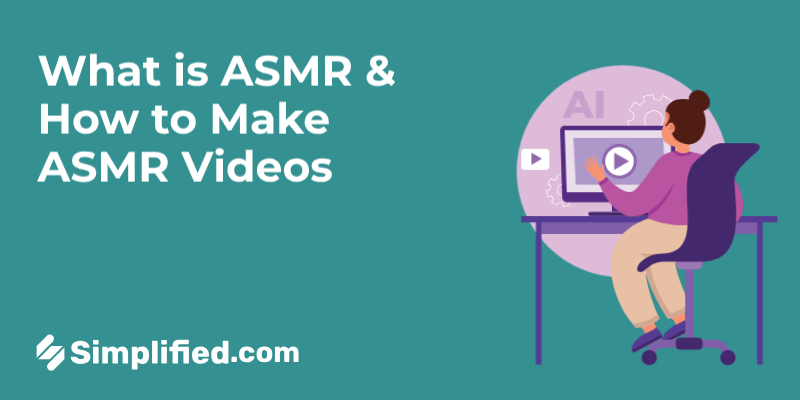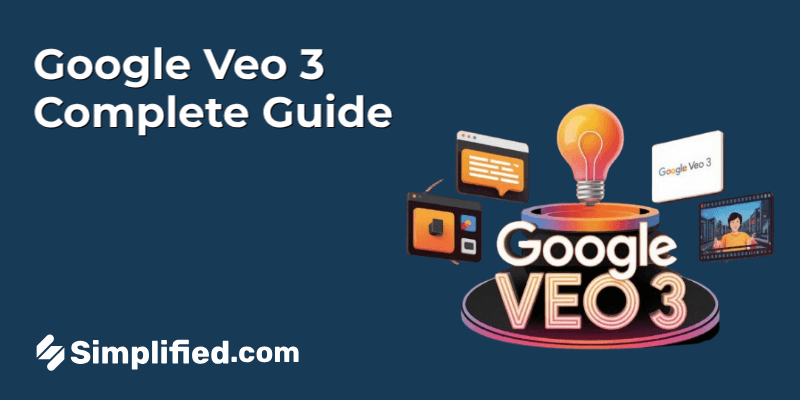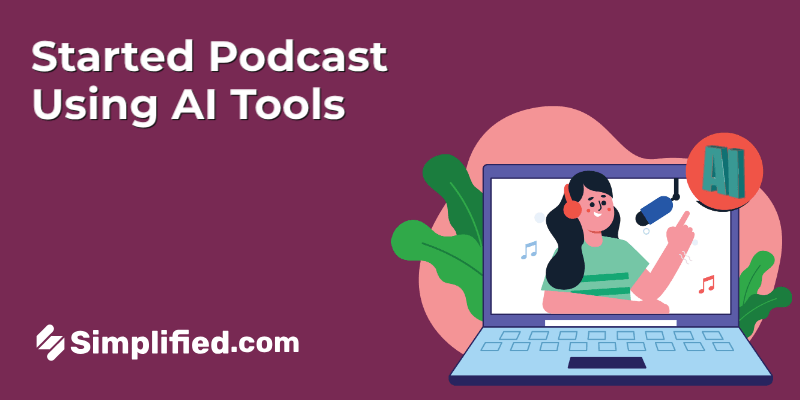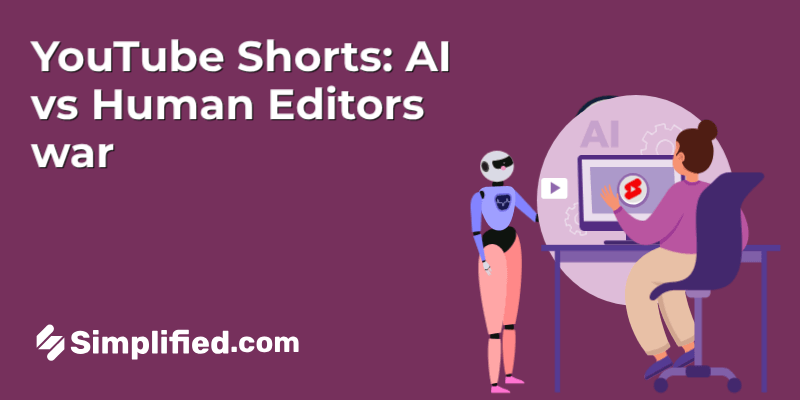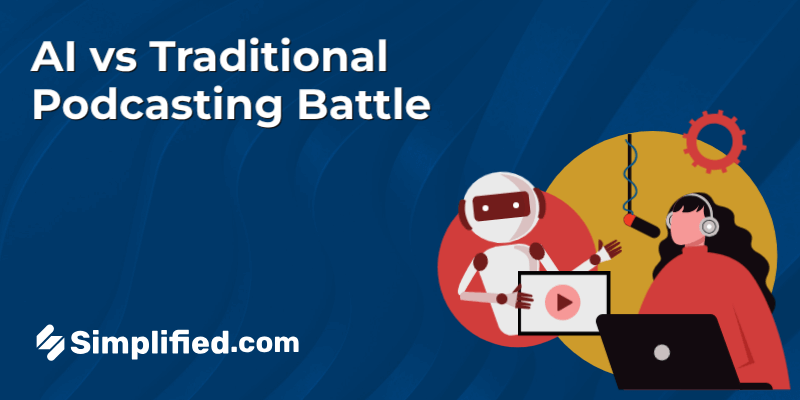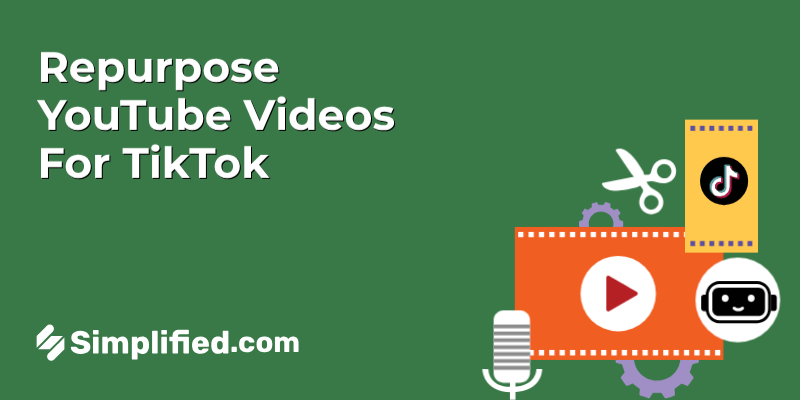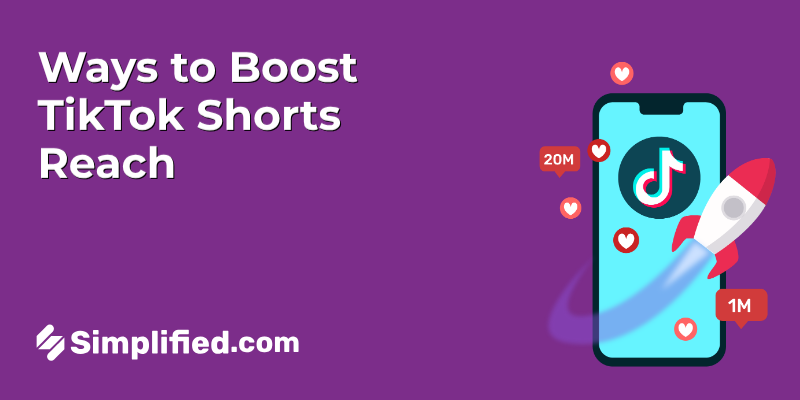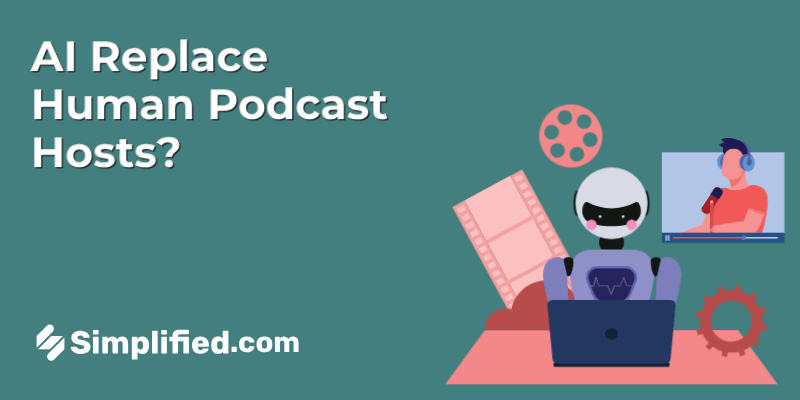
Artificial Intelligence (AI) has become an integral part of numerous industries, transforming how tasks are handled and improving efficiency. From healthcare and finance to marketing and entertainment, AI’s influence is undeniable. One area where AI has recently begun to make significant strides is in podcasting.
Gone are the days when creating a podcast required an extensive setup and substantial resources. Today, AI tools can now generate voices that sound remarkably human, opening up new possibilities for podcast creators. These AI-generated voices are not just limited to standard text-to-speech translations but can also capture intonations, emotional nuances, and more, making them sound almost indistinguishable from a real human voice.
The purpose of this blog is to delve deeper into this burgeoning trend, examining the potential for AI to replace human podcast hosts. We’ll explore the advancements in AI voice technology, assess the authenticity and listener reception of AI-generated voices, and discuss the ethical implications of replacing human hosts with AI.
How AI-Generated Voices Work
Description of AI Voice Technology
Voice technology has seen remarkable advancements over the past few years, integrating artificial intelligence (AI) to produce highly sophisticated and natural-sounding voices. The core of AI voice technology revolves around the use of algorithms and vast amounts of data to imitate human speech patterns. These synthetic voices are becoming difficult to distinguish from real human voices, making them an attractive option for applications such as podcasts.
Speech Synthesis and Deep Learning
The magic behind AI-generated voices lies in two critical areas: speech synthesis and deep learning. Speech synthesis involves converting text into spoken words, which was initially done using simple concatenation of prerecorded words. However, modern AI utilizes deep learning models, which involve training neural networks with large datasets of human speech. This deep learning approach allows the AI to learn the myriad nuances of speech, including intonation, pitch, and rhythm.
Two of the most common methods used in speech synthesis are:
- Concatenative Synthesis: This method involves piecing together prerecorded segments of speech to form complete utterances. It’s like a complex puzzle, where each piece is a snippet of sound.
- Parametric Synthesis: In this method, statistical models are used to generate speech, offering more flexibility and the ability to create diverse voices with different characteristics.
Examples of AI Voice Generators Currently Available
- Simplified AI Voice Generator: Simplified offers a user-friendly text-to-speech tool that allows content creators, marketers, and educators to generate realistic voiceovers in multiple languages and tones. It’s especially popular among teams looking for quick audio content creation without needing professional recording equipment.
- Google Text-to-Speech: Known for producing natural-sounding voices, it’s widely used in applications like Google Assistant and Google Translate.
- Amazon Polly: This service from Amazon Web Services converts text to lifelike speech. It supports multiple languages and dialects.
- IBM Watson Text to Speech: IBM’s service offers customization options, enabling users to control the pitch, intonation, and pace of the generated voices.
- Microsoft Azure Cognitive Services: This comprehensive suite from Microsoft includes state-of-the-art text-to-speech capabilities used in various professional and accessibility applications.
These tools are continually evolving, allowing users to create more engaging content with minimal effort. The use of AI for podcasts has been particularly transformative, making it easier to generate high-quality content quickly.
Bonus: 100+ Captivating Podcast Name Ideas to Inspire Your Next Show
Using AI in Podcast Creation
AI-generated voices are rapidly gaining traction in the world of podcasts, enabling creators to produce content without human hosts. This technology is transforming lengthy podcasts into brief, shareable clips. It’s evident that AI tools are here to stay, reshaping how we approach content creation and delivery.
AI vs Human Podcast Hosts: Authenticity and Engagement
The debate between AI-generated voices and human podcast hosts is becoming more prevalent as technology advances. Understanding the nuances of authenticity and listener engagement is crucial when considering AI for podcast hosting. Let’s dive into the key aspects of this discussion.
Measuring the Authenticity of AI-Generated Voices
Authenticity is a significant factor in podcasting. Listeners often form a personal connection with hosts, largely influenced by the perceived authenticity of their voice and delivery. AI-generated voices have made significant strides in mimicking human intonations and emotions, but questions remain about their ability to replicate the natural nuances that human hosts inherently possess.
AI voices can be tailored to sound more human-like by incorporating various parameters, but they currently still lack the unpredictable emotional variations that human voices exhibit. This can sometimes result in a less relatable and engaging listening experience for the audience.
Bonus: AI Podcast Clips Get 5x More Views and Shares—Here’s How
Comparing Listener Engagement: AI vs Humans
Listener engagement is another critical metric for success in podcasting. Human hosts often excel in this area due to their ability to share personal anecdotes, spontaneous reactions, and genuine emotions. These elements create a sense of connection and relatability with the audience.
AI-generated hosts can deliver consistent and precise content without the need for breaks or emotional biases. However, the lack of human touch might impact long-term engagement. Listeners might miss the warmth and authenticity that a human host brings, potentially affecting their retention and loyalty.
Real-World Case Studies and Examples
- Simplified Podcast Maker: Helps creators produce AI-generated episodes quickly with scripts and voices. Ideal for marketers, though less personal than human hosts.
- Descript’s Overdub: Lets podcasters clone their voice for edits or full narration. Great for fixing mistakes, but listeners notice tonal limitations.
- Wondercraft AI: Used for producing full podcast episodes with synthetic voices. Efficient, but some users miss emotional nuance.
- Google NotebookLM: Transforms written notes into podcast-style audio. Fast for summarization, but lacks conversational tone.
Examining these examples can offer insights into how AI tools are integrated into podcasting, balancing efficiency and human-like interaction.
Bonus: 5 Tips for Writing a Killer Podcast Description
Ethical Considerations of AI in Podcasting
As AI becomes more common, its use in podcasting is also growing. AI-generated voices are now capable of hosting full episodes, changing how podcasts are made and presented. But with these changes come some important ethical issues that need attention:
1. Bias in AI Algorithms
AI systems learn from large datasets, which often reflect real-world biases. This can lead to content that unintentionally excludes certain groups or reinforces unfair assumptions. It’s important to design and test AI tools carefully to reduce bias and make sure podcast content is fair and inclusive.
2. Job Displacement for Human Hosts
AI voices may reduce the need for human hosts, which could affect people working in podcasting and related creative fields. Rather than replacing hosts, AI could be used to support them—offering new tools while keeping people involved in the process.
3. The Need for Clear Ethical Guidelines
Using AI in podcasting should come with clear rules. These include being open with listeners about when AI is used, protecting personal data, and respecting the rights of creators. These steps help build trust and keep the use of AI responsible.
📌 Note: For a complete guide on audience growth, check out this post on How to Grow Your Podcast Using TikTok and Instagram in 2025.
The Future of AI-Generated Podcasting
As we look ahead to the next decade, the landscape of podcasting is set to be profoundly influenced by advancements in AI technology. Predictions about the future of AI for podcasts offer an exciting glimpse into a world where automation and human creativity coexist. Here’s what we can expect:
Predictions for the Next Decade
Experts predict that AI-generated podcasts will become more prevalent, with advancements making the technology more accessible and easier to use. Some key developments may include:
- More sophisticated AI-driven audio editing tools that reduce the need for manual intervention.
- Enhanced natural language processing (NLP) capabilities enabling AI to understand and mimic human speech patterns more accurately.
- Personalized AI podcast maker that tailors content to individual listener preferences, thus optimizing the audience experience.
For more insights, you can explore how AI is shaping the future of blog content creation, which parallels some of the advancements seen in podcasting.
Potential Advancements in AI Technology
The technological progress in AI will likely extend to the abilities of AI podcast generators. These advancements may include:
- Real-time audio synthesis, allowing AI to produce immediate responses in conversations.
- Emotion recognition and replication, enabling AI voices to convey a wider range of emotions, thus making them more relatable to human listeners.
- Integration with other AI systems to provide dynamic content based on current events and individual interests.
Role of Human Hosts Alongside AI
While AI technology continues to progress, the role of human hosts remains important. The unique insights and personal touch that human hosts bring to the table cannot be completely replaced by AI. In the future, we may see a hybrid model where AI handles more repetitive and time-consuming tasks while human hosts inject creativity, personality, and emotional depth into their podcasts.
- Human hosts can focus on content creation and topic expertise while AI manages technical editing and distribution.
- Collaborative AI tools could assist human hosts by providing real-time feedback and suggestions during recordings.
- The blend of AI efficiency and human creativity will result in richer, more engaging content for listeners.
The future of AI in podcasting is bright, with endless possibilities for innovation. By leveraging these advancements, podcasters can create more dynamic and tailored content, offering audiences new and enriching experiences.
Conclusion: Balancing Tech and Human Touch
As we’ve explored the fascinating world of AI in podcasting, it is clear that technology has made remarkable strides in creating realistic AI-generated voices. These advancements enable podcasts to reach broader audiences, create content more efficiently, and offer diverse listening experiences. However, the role of human hosts still holds significant value in terms of authenticity, emotional connection, and ethical considerations.
Summary of Key Points
- AI-generated voices are becoming increasingly sophisticated and can mimic human nuances effectively.
- Human hosts bring authenticity, emotional depth, and personal touch that AI currently cannot fully replicate.
- Ethical concerns, such as transparency and authenticity, need to be addressed when incorporating AI in podcasting.
- The hybrid model, blending AI capabilities with human touch, shows promise for the future of podcasting.
Personal Insights and Takeaways
While AI offers exciting possibilities for the podcasting industry, it should be seen as a tool rather than a complete replacement for human hosts. The magic of podcasting lies in the unique voices and perspectives that hosts bring. Technology can assist in production, editing, and even generating content, but the human element keeps the content relatable and meaningful.
By using AI tools, podcasters can focus on what they do best—write stories and genuine connections with their audience. It’s essential to strike the right balance and use AI generated voices ethically and transparently.
Final Thoughts on the Future of AI in Podcasting
The integration of AI in podcasting is an evolving journey that presents both opportunities and challenges. We foresee a future where AI and human hosts coexist, each contributing their strengths to deliver exceptional audio content. Maintaining the right balance between technological efficiency and human authenticity will be key to achieving success in this innovative domain.
Frequently Asked Questions About AI-Generated Podcast Hosts
What are AI-generated podcast hosts?
AI-generated podcast hosts are artificial voices created using advanced algorithms to mimic human speech and intonation. These hosts can narrate shows, conduct interviews, and manage other podcasting tasks autonomously.
Can AI-generated voices sound natural?
Yes, with modern advancements, AI-generated voices can be incredibly lifelike. They can replicate various accents, emotions, and speech patterns, making them sound very close to human hosts.
Will AI hosts replace human hosts completely?
While AI hosts can manage many aspects of podcasting, they may not entirely replace human hosts. The unique touch, creativity, and spontaneity of human hosts still hold significant value in the industry.
Are there ethical concerns regarding AI-generated podcast hosts?
Yes, the use of AI in podcasting raises ethical questions regarding authenticity, employment opportunities, and listener trust. It’s essential to consider these aspects and maintain transparency with audiences about the use of AI.
How does AI impact listener engagement?
AI-generated content can provide a consistent flow of information and remain available 24/7. However, maintaining genuine interaction levels reminiscent of human hosts can be a challenge for AI.

